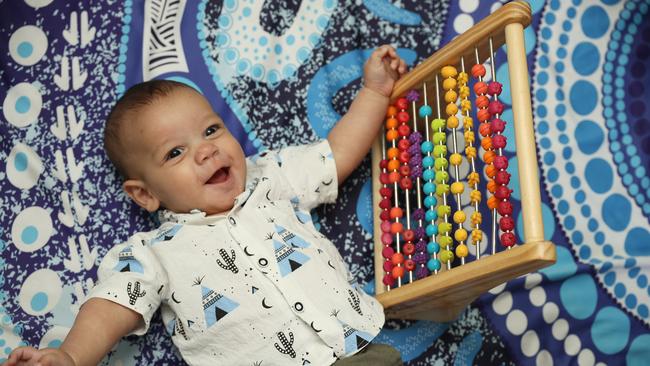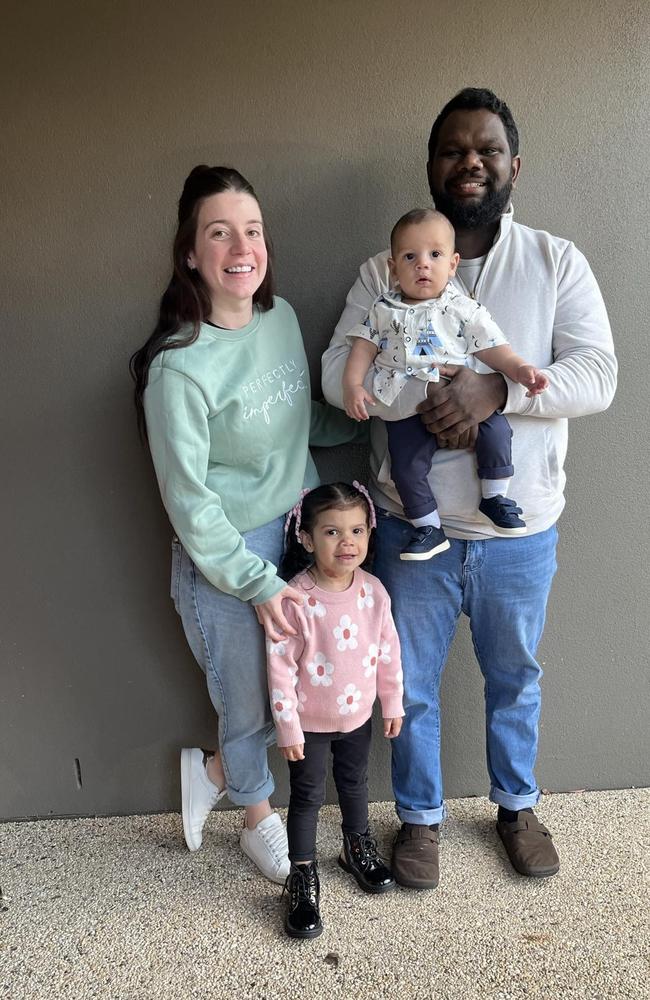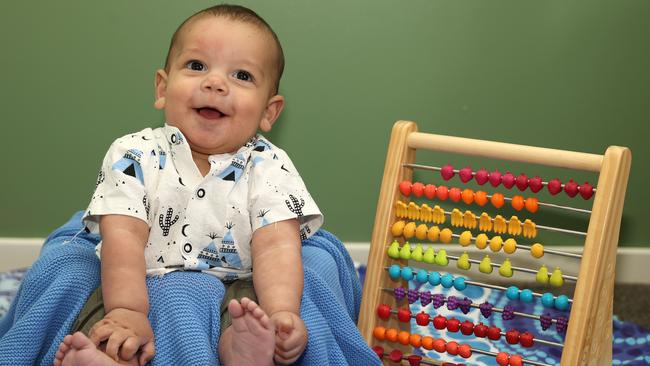Geelong experiences baby boom as national birth rates decline
Thousands of babies, including Dante Baira, were born across Geelong last year. Here’s why the region is going against the grain of birth rates around Australia.

Geelong
Don't miss out on the headlines from Geelong. Followed categories will be added to My News.
Dante Baira was one of more than 3800 bubs born in Geelong last year, as the region bucks a trend of declining births nationally.
The region’s birth rate moved against the grain of the national average, with an 11 per cent increase from 2019 to 2023, compard to a 4.6 per cent fall year on year across Australia.
Dante is the second child to Lara couple Jess Jackson and Ronnie Baira.
Their eldest child Zoey is three and Dante was born in November.

Ms Jackson said 2023 was a good time to grow their family with a nice age gap between the siblings.
“Also, Covid times had settled down so it was more relaxed in the hospital,” she said.
“I didn’t have a very good experience the first time because it was right in the middle of Covid so it was nice to have that time over again and to be able to have the birth I wanted.”
KPMG Australia revealed Geelong had seen a drop in babies born from 2022 to 2023 from 4000 to 3830.
Urban economist Terry Rawnsley said housing affordability played a significant role in people considering having children in Geelong.
“We saw a bigger drop in more expensive cities so more affordability means people can manage their budget to have children,” he said.
“The green field growth in Armstrong Creek also means there is ready-made, child-friendly houses for people to move straight into.”
Mr Rawnsley said a strong labour market, with plenty of jobs available meant people worried less when planning to expand their family.
“There’s enough vibrancy in the Geelong economy for people to have confidence to start a family,” he said.

Mr Rawnsley said Covid also had an impact as regional Victoria experienced more “normalcy” so there was less uncertainty around having children during those years in Geelong.
He said people who made the move from Melbourne to Geelong and the Surf Coast during the Covid tree change also contributed to the birth rates.
Nationally, birth rates can be linked to weak growth in the economy and cost-of-living pressures.
“We haven’t seen such a sharp drop in births in Australia since the period of economic stagflation in the 1970s,” Mr Rawnsley said.
“This combination of pandemic and economic changes explains the spike and then rapid decline in births we have seen over the past four years.”
Nationally, the number of births in 2023 was the lowest since 2006.
The content summaries were created with the assistance of AI technology, then edited and approved for publication by an editor.
Originally published as Geelong experiences baby boom as national birth rates decline




